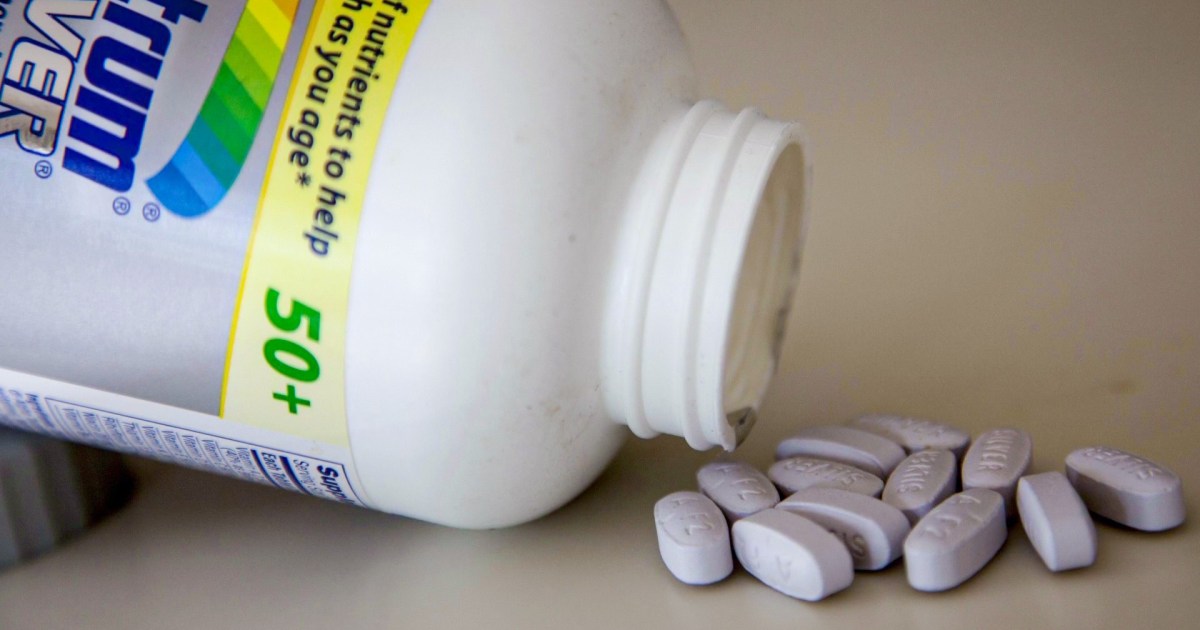More Evidence Suggests Multivitamins May Help Slow Memory Loss Dr

Multivitamins May Help Slow Memory Loss In Older Adults Study Shows The Washington Post You can say "more smooth", or "smoother". both are fine and mean exactly the same thing. but beware of trying to combine them, and saying "more smoother"! many will say that a formulation like that is wrong. It would be appreciated if you can let us know when can we expect to receive the final payment does this sound right? i have been using the sentence above whenever i am trying to be polite while c.

Multivitamins May Slow Memory Loss In Older Adults The Washington Post I am having a difficulty on what is the proper usage of more likely and most likely. is there any way to remember the difference between these two phrases easily? on the following sentences below,. Of the two, ronald has been the more successful athlete. in this structure, “the more” seems to function as a superlative (like “the most” if there were three or more), which can’t be followed by “than”, whereas “more” and “a more” are normal comparatives like you’d expect. When "more" is used before adjective or adverb as "inconvenient" in your example, it is an adverb whose primary function is to modify the following word. however, when it is used before a noun (or sometimes after a noun), it is used as a determiner or adjective. for example: i need more money. more context is required. i need something more (to eat). in the above examples, it means: greater in. The modifies the adverb more and they together form an adverbial modifier that modifies the verb doubt. according to wiktionary, the etymology is as follows: from middle english, from old english þȳ (“by that, after that, whereby”), originally the instrumental case of the demonstratives sē (masculine) and þæt (neuter).

What We Know About Multivitamins And Memory The New York Times When "more" is used before adjective or adverb as "inconvenient" in your example, it is an adverb whose primary function is to modify the following word. however, when it is used before a noun (or sometimes after a noun), it is used as a determiner or adjective. for example: i need more money. more context is required. i need something more (to eat). in the above examples, it means: greater in. The modifies the adverb more and they together form an adverbial modifier that modifies the verb doubt. according to wiktionary, the etymology is as follows: from middle english, from old english þȳ (“by that, after that, whereby”), originally the instrumental case of the demonstratives sē (masculine) and þæt (neuter). The "love" in "i would love to" has little to do with the "love" in "i love you"; the second one is expressing a personal emotion that is (arguably) unprofessional, while the first one is expressing enthusiasm for an event or an activity. "i love my job" or "i love making clients happy", when spoken without sarcasm, are exceedingly professional. Just fyi, though, "more better" is pretty frequently used ironically these days by the hipsters and the whatnot to simply mean "better". also, while i think no one would responsibly advocate this use, i think you could make an argument for saying "peaches are more better than apricots than plums are better than pluots". Sure enough, this ngram shows that stupider got started long after more stupid. apparently, the need to compare levels of stupidity was so great that people granted stupid a sort of honorary anglo saxon status in order to use the more convenient comparative er. and once stupider is in, by analogy vapider eventually starts sounding more acceptable. As for er and est vs. more and most: we use the er and est suffixes on shorter adjectives. on longer ones, we use more and most: you are most unlikely (see how "most unlikely" works?) to see "sympatheticer" or "sympatheticest" anywhere, for example.

Daily Multivitamins May Help Slow Memory Loss New Study Shows The "love" in "i would love to" has little to do with the "love" in "i love you"; the second one is expressing a personal emotion that is (arguably) unprofessional, while the first one is expressing enthusiasm for an event or an activity. "i love my job" or "i love making clients happy", when spoken without sarcasm, are exceedingly professional. Just fyi, though, "more better" is pretty frequently used ironically these days by the hipsters and the whatnot to simply mean "better". also, while i think no one would responsibly advocate this use, i think you could make an argument for saying "peaches are more better than apricots than plums are better than pluots". Sure enough, this ngram shows that stupider got started long after more stupid. apparently, the need to compare levels of stupidity was so great that people granted stupid a sort of honorary anglo saxon status in order to use the more convenient comparative er. and once stupider is in, by analogy vapider eventually starts sounding more acceptable. As for er and est vs. more and most: we use the er and est suffixes on shorter adjectives. on longer ones, we use more and most: you are most unlikely (see how "most unlikely" works?) to see "sympatheticer" or "sympatheticest" anywhere, for example.
Comments are closed.